Editor's note: Howard Kurtz is the host of CNN's Reliable Sources and Newsweek's Washington bureau chief. He is also a contributor to the website Daily Download.
(CNN) -- Is Twitter forcing journalists to march in mindless lockstep?
On the surface, the notion seems absurd. Media folks may hang out on Twitter as the new cool-kids' club, but isn't the point to broadcast your own brand? Why would anyone in the news racket want to echo what the rest of the gang is saying?
Washington Post columnist Dana Milbank conjured up the thesisafter seeing hordes of colleagues tweeting away at a presidential debate. It is on all those laptop screens, he says, that "the conventional wisdom gels -- and subsequent tweets, except those from the most hardened partisans, increasingly reflect the Twitter-forged consensus."

Howard Kurtz
Before explaining why this is utterly wrong -- OK, mostly wrong -- a little background on what has become a powerhouse social media network.
Twitter is the new AP, I like to say, a place where journalists often break news, even before feeding it to their employers. This happened to me a couple of weeks back when I learned from a source while driving that Roger Ailes had signed a new four-year deal to run Fox News. I pulled over, tweeted it on my iPad and watched it ricochet across the Web well before I could write an actual story.
This is a bit of a problem, as news organizations aren't getting the traffic from these posts. But they are still getting credit, and the truth is we have no choice but to be part of that conversation. With its plethora of links and more than 500 million users, Twitter is a heck of a self-promotional vehicle for those trying (sometimes relentlessly) to publicize their own work.
Become a fan of CNNOpinion
Stay up to date on the latest opinion, analysis and conversations through social media. Join us atFacebook/CNNOpinion and follow us @CNNOpinion on Twitter. We welcome your ideas and comments.
But the site can also be a minefield that claims journalists as collateral damage. Precisely because it's so instantaneous -- type 140 characters and click -- a growing number of media people have been fired, suspended or removed from stories for insensitive messages and jokes.
It happened again recently when a New York Times Magazine writer was put on hiatus for a month after insulting a female critic of his interview with an actress by saying the woman wished she could sleep her way to the top.
Twitter's clout extends well beyond those who check it every 10 minutes. Since most journalists these days wants to know what's "trending," what's hot on Twitter quickly makes its way onto websites and cable news shows that desperately want a hipness injection.
There is something uniquely democratic about this, because millions of ordinary people can "vote" a story -- or bit of silliness -- onto the national agenda. That breaks the power of the old media oligopoly.
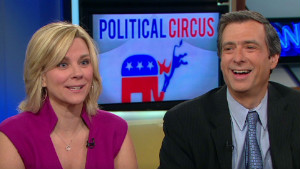
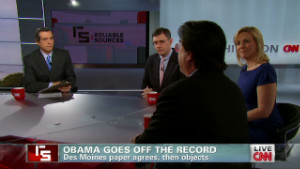
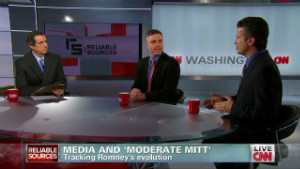
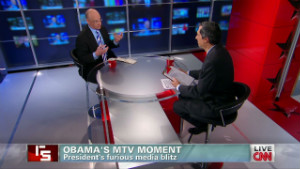
Of course, this zeitgeist-shaping can manifest itself in odd ways. When I was at the second presidential debate, I was blissfully unaware that Mitt Romney had stepped in it by uttering the phrase "binders full of women" until I noticed it exploding on my Twitter feed.
The campaigns have also used Twitter as a weapon, not just by exchanging snarky tweets but by pushing mocking hashtags, or searchable phrases -- sometimes through "promoted tweets," as Obama's side did with the "binders" comment.
That brings me back to Milbank's argument that Twitter prods the journalistic lemmings in the same direction. They "want to make sure that their opinions are not veering from other opinions," he told me. Otherwise, "it'll look like you don't know what you're talking about if you defy the conventional wisdom."
It's worth noting that Newsweek started its Conventional Wisdom Watch back in 1988, well before we were all using the interwebs. And I'm sure a few journalists rely on Twitter as a digital weathervane to make sure they're pointing in the right direction.
But I view Twitter as a cauldron of ideas -- some brilliant, some witty, some wacky. I see lots of people take issue with each other (or with me), sometimes less than politely. Since I make a point of following people on the left and right, I get revealing glimpses into what's cooking across the spectrum.
In this kind of crowded marketplace, most media people and civilians try to stand out with smart and edgy insights, rather than just repackage what everyone else is dishing.
I guess it all comes down to who you follow and whether you escape the hall of mirrors by occasionally shutting the thing off.

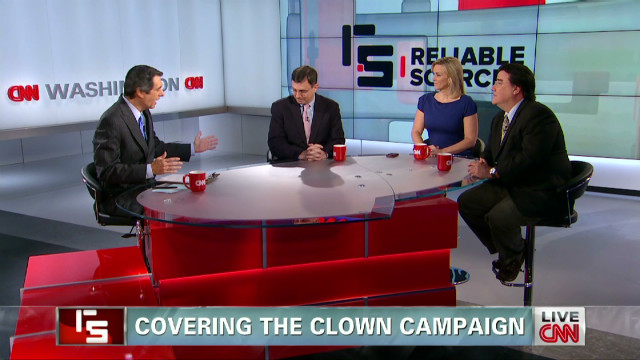
Tidak ada komentar:
Posting Komentar